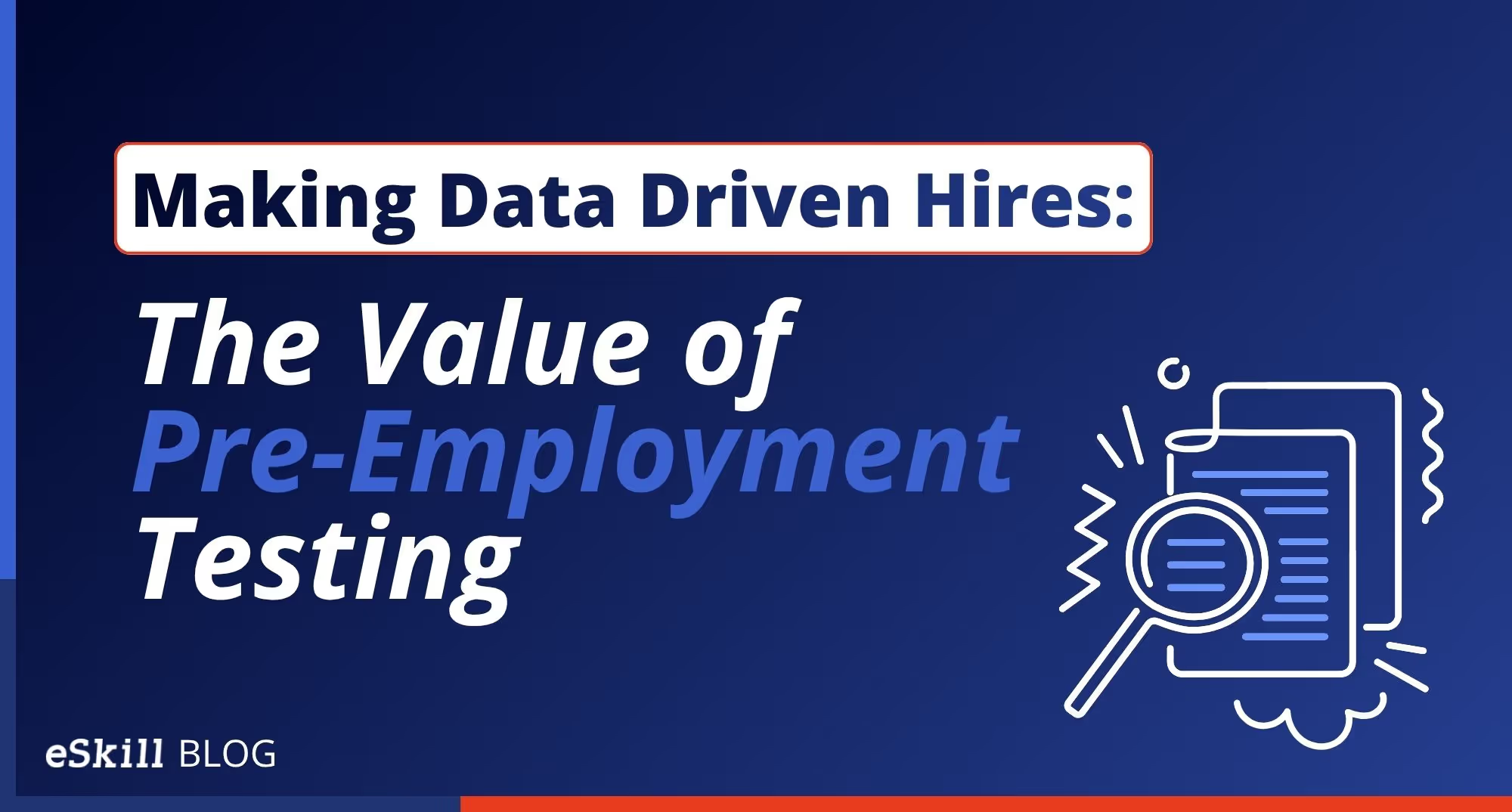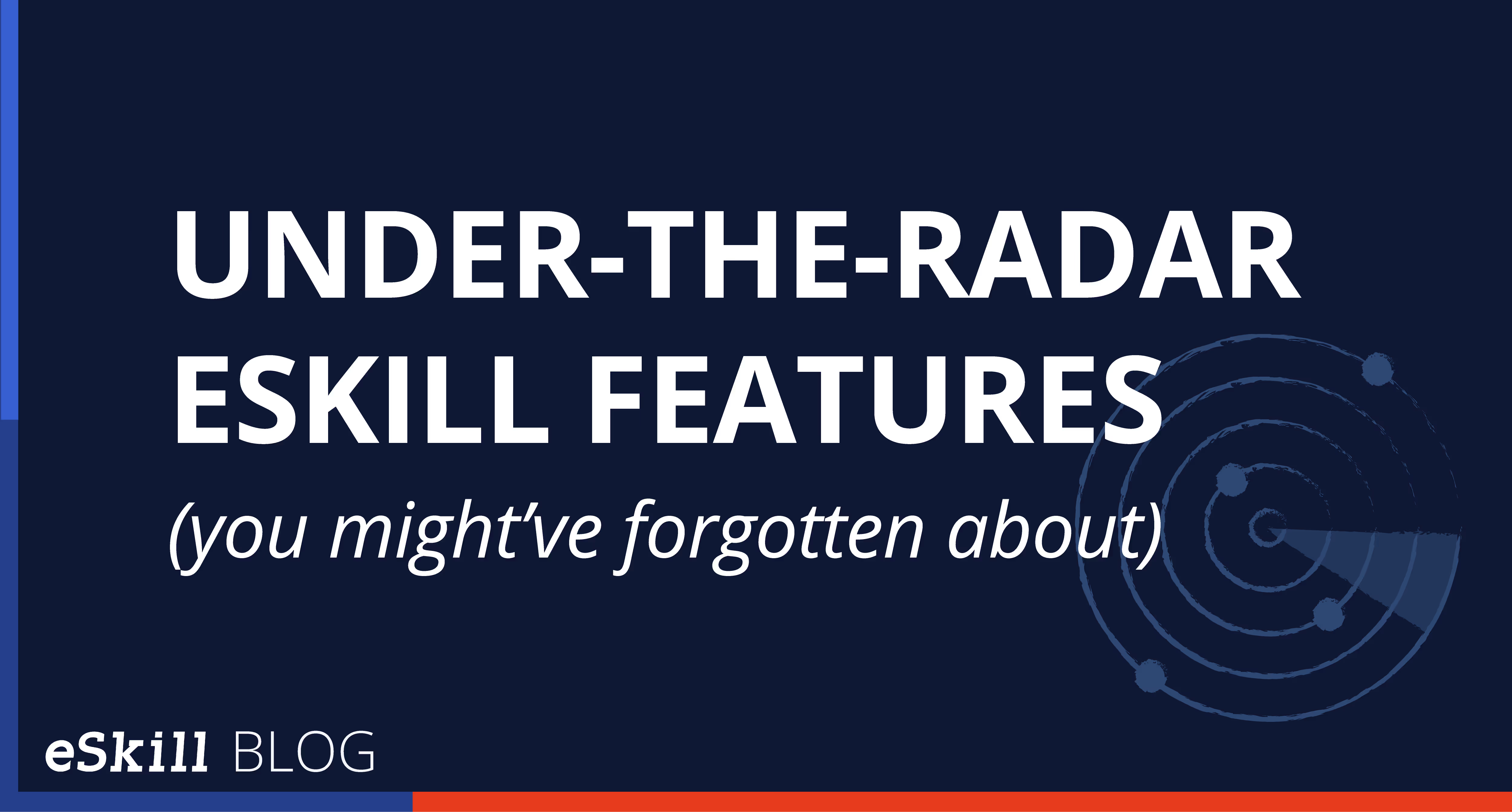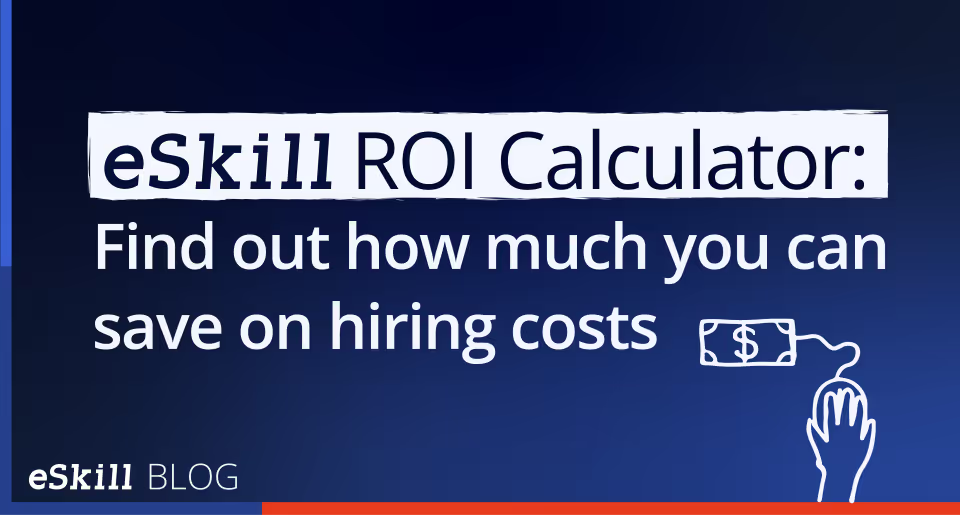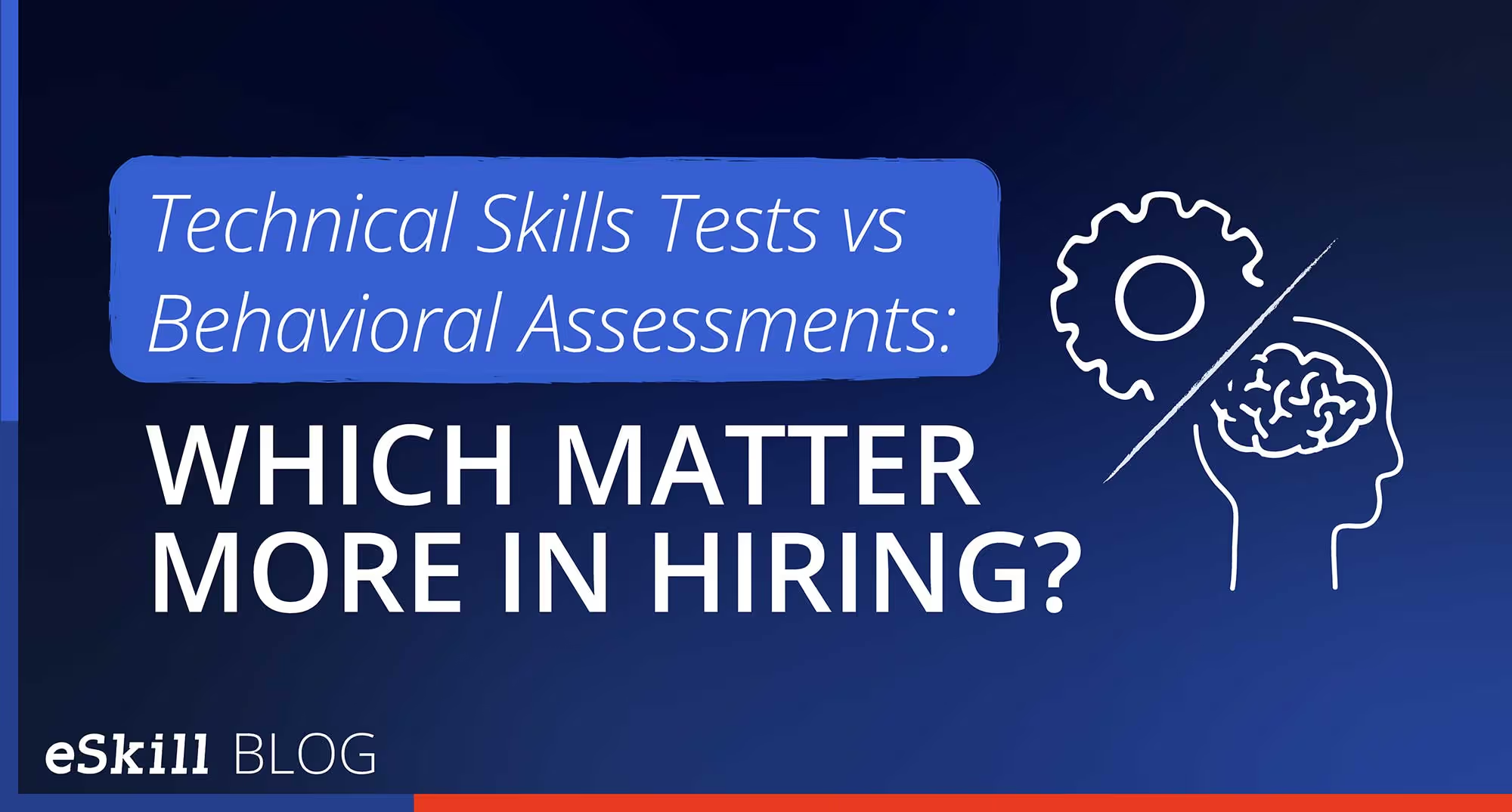Every HR manager wants to recruit “perfect” candidates for their open roles, which has never been easy but has recently become very challenging. If you often feel like you are searching for a needle in a haystack, you are not alone.
If you and your team are having difficulty recruiting top candidates, it’s because there is a shortage of applicants with the skills you need. A Korn Ferry report shows a global talent shortage of over 85 million people. This is roughly equal to the population of Germany. The problem has become so critical that 71% of CEOs say a skills shortage will be their biggest business challenge during this decade.
If your organization is like most, you have upgraded your technology or implemented digital transformation initiatives, which means your hiring needs and your list of in-demand skills have changed. Many applicants’ skills have not kept pace with these changes, and the result is a huge skills and knowledge gap.
To address this gap, many businesses have implemented an industry-leading pre-employment skill testing solution like the eSkill Talent Assessment PlatformTM to make identifying and hiring top candidates easier.
What Is Pre-Employment Testing?
Employers unfamiliar with assessments often ask, “What is the main purpose of pre-employment screening?” We tell them organizations like theirs use pre-employment skill tests to screen job candidates, as well as current employees, to confirm they have the skills to do a job. They also use behavioral assessments to determine if a candidate is a good fit for a job and the company culture.
They also ask, “What are two commonly used pre-employment tests?” We tell them there are many types of job assessments, but pre-employment skills tests and behavioral assessments are the most popular.
By reviewing skills test results, you can easily confirm that an employee can do a job. For example, if you need to hire an administrative assistant with advanced MS Office® proficiency, asking applicants to answer questions that pertain to advanced Word, Excel, and PowerPoint features will show you whether they understand these functions and know how to use them.
Behavioral assessments tell you whether a candidate is a good fit for a job and your company culture. They are not designed to be diagnostic, but they do indicate whether a potential new hire is likely to succeed in your organization. For example, if you are hiring a manager who must collaborate with other department heads, a behavioral assessment can identify candidates who are good team players.
Two other types of skills tests deserve mention—cognitive tests and simulations. Cognitive tests assess candidates’ ability to think, reason, solve problems, and learn new material. Employers use cognitive tests to fill positions where employees must think on their feet and consider multiple factors to make important decisions, such as a 911 dispatcher or emergency room administrator.
They also use them when hiring employees who will work in a dynamic, unpredictable environment or must constantly learn new techniques. Two examples might be a network administrator or cyber security manager.
Simulations mimic realistic job situations candidates are likely to encounter on the job. You will find they are one of the best indicators in determining which applicants are best qualified because they show how candidates will react in day-to-day situations. For instance, if you are hiring a customer service representative who is likely to work with several callers simultaneously on the phone, by email, and using chat applications, simulations that test computer skills and multitasking will show you which applicants are best qualified.
What Are Examples of Aptitude Tests for Pre-Employment?
Leading assessment solutions offer clients access to a library that contains hundreds of skills tests. Some examples of pre-employment tests in the eSkill Assessment Library include:
For IT and Technical Roles:
- Web Designer and Web Developer
- Java, SharePoint, and Salesforce Developer
- Software and Quality Assurance Testing
- Machine Learning Engineer and Database Administrator
For Finance and Accounting Roles:
- Accounting Clerk and Accounting Administrator
- Financial Analyst and Financial Assistant
- Loan Officer and Credit Analyst
- Debt Collector and Reconciliation Specialist
For Marketing and Communications Roles:
- Digital Marketer and Email Marketing Manager
- Marketing Assistant and Marketing Coordinator
- Sales Representative and Sales Administrator
- Store Manager and Telemarketer
For Customer Service and Sales Roles:
- Customer Service Representative and Live Chat Operator
- Call Center Operator and Help Desk Specialist
- Inbound and Outbound Call Simulation
- Phone Etiquette and Emotional Intelligence
For Healthcare Roles:
- Medical Director and Medical Assistant
- Medical Biller and Medical Transcriptionist
- Emergency Medical Technician and Patient Care Aide
- Pharmacist and Phlebotomist
What Are the Most Common Aptitude Tests?
We are often asked what the most common aptitude tests are. There is no definite answer because it depends on your industry and the type of company you operate.
If you work in the call center space, you will most likely use the eSkill Customer Service Representative and Call Center Operator pre-employment tests along with Inbound and Outbound Call Simulations. Popular assessments for law firm recruiters probably include the eSkill Paralegal, Litigation Legal Assistant, and Labor and Employment Law skills assessments. Manufacturing companies most likely use the eSkill Industrial Production Manager, Manufacturing Engineer, and Assembly Technician pre-employment tests regularly.
The most common aptitude tests across all industries are computer proficiency pre-employment tests. According to the National Skills Coalition, 92% of all jobs require at least basic computer skills. Millions of companies worldwide use MS Office. Assuming your company is one of them, you can assess applicants’ computer proficiency using Word, Excel, and PowerPoint skills tests and simulations.
Implementing Pre-Employment Testing Programs Step-by-Step
If you are like most HR managers, you have learned that it is impossible to make informed hiring decisions by reviewing resumes and scheduling interviews. Since 80% of applicants lie on their resumes, hiring a candidate whose resume looks “perfect” and who says all the “right” things during interviews could end up being a mistake that costs hundreds of thousands of dollars. The following scenario shows why it is important to implement a pre-employment testing program.
Inez, the HR manager for a computer chip fabrication facility, needed to fill a clean room technician position. She posted the job, reviewed resumes, and created a shortlist of promising candidates to interview.
Zach emerged as the top candidate. His resume included the right skills and experience, and he had worked for several similar companies. When Inez asked him why he was exploring new opportunities, he said he was not being challenged in his current role and wanted access to more training and development prospects.
Feedback from Nathan, the hiring manager, and prospective team members was positive, and references from past managers and colleagues were excellent. Inez was sure she had found the perfect candidate and offered Zach the job.
It soon became obvious thatZach had misrepresented his skills and experience on his resume and during interviews. Inez and Nathan tried to teach Zach the skills he needed to be successful, but nothing worked. Push finally came to shove when shipments for a critical order were contaminated because Zach had not followed established clean room procedures, and he was terminated.
Inez had heard that implementing pre-employment skills tests would help her company reduce hiring errors. So, she started researching solutions and discovered that top solutions should provide her with the following features:
- Ability to Instantly Screen Applicants: When she and her team posted a job, they could review pre-employment skills test results and instantly identify top candidates.
- Assessment Library: A top pre-employment skills testing solution should provide her with access to a library with hundreds of validated job- and subject-based skills tests.
- Customization Options: She should have the option to use assessments as-is, modify them by adding and deleting questions, or build her own pre-employment skills tests by choosing questions from multiple skills tests.
- Simulations: She and her team should be able to include simulation questions in pre-employment skills tests to ensure candidates can apply their knowledge and experience on the job.
- Video Response Questions: Since it is impossible to evaluate some abilities, such as verbal communication and foreign language skills, using written assessments, she needs the option to use video response questions to evaluate these attributes.
- Dedicated Assessment Expert: A leading pre-employment skills testing solution should be easy to set up and implement in a few hours. Nevertheless, she and her team should be assigned a dedicated assessment expert in case they have questions or need help setting up hiring strategies.
Legal Considerations for Using Pre-Employment Tests Fairly
Many organizations are leery of pre-employment skills tests because they have heard they can cause legal compliance problems. The opposite is true. Studies show that using pre-employment skills testing is one of the best ways to minimize hiring bias because it opens the door for applicants who might otherwise be rejected due to a requirement listed in the job description, such as the lack of a college degree or work experience at so-called appropriate companies.
Business leaders know minimizing unconscious and overt bias is important because irrational and unfair hiring practices lead to lower employee morale and productivity, as well as potentially incurring legal consequences. A Deloitte study showed that 68% of U.S. employees felt workplace bias hurt their productivity, and 84% reported that it negatively impacted their mental health. These are some ways pre-employment skills tests reduce your vulnerability to legal challenges.
- Data-Driven Candidate Selection: Pre-employment skills tests virtually eliminate the risk that bias will influence hiring decisions because all applicants complete the same test and are ranked by score. Candidates only advance in the hiring process if their results show they meet the job requirements.
- Validated Pre-Employment Skills Tests: A hiring team cannot make good decisions if its members are unclear about what skills and competencies candidates should have. So, conducting thorough job analyses and creating validated pre-employment skills tests is essential in a legally defensible hiring process.
- Standardized Interviews: Structured, standardized interviews reduce the risk of bias because candidates answer video response questions. Applicants listen to the questions in the same order and answer them by recording their answers. They do not engage with hiring team members, and their answers are scored according to pre-defined criteria. Some organizations disable the video so hiring team members can listen to the answers without seeing the candidates.
- Enable Merit-Based Hiring Practices: Merit-based hiring is often called skills-based hiring because candidates must prove they meet the job requirements by completing a pre-employment skills test. This means applicants are evaluated on their abilities, regardless of how they obtained the knowledge and expertise.
Hiring top talent improves productivity. According to a McKinsey report, if you replaced 20% of the average talent on one of your project teams with top talent, it would take less than two years to complete the project if the team was 400% more productive and less than a year if it was 800% more productive. Furthermore, if a competitor hired talent that was 20% better than yours, that company would beat you to market even if it started on the same project a year or two later.
Why Organizations Need Pre-Employment Skills Tests
Companies in virtually every industry implement pre-employment skills testing to streamline hiring, decrease time-to-hire, and reduce turnover. These are some companies that have improved hiring outcomes and simplified recruiting by implementing the eSkill Talent Assessment PlatformTM.
- TaskUs is a global provider of outsourced digital and customer services that help companies protect and grow their brands. Implementing a pre-employment skills testing solution helped the company improve quality of hire and reduce turnover by 25%.
- Charger Logistics, a commercial transportation company, reduced hiring costs by 30% and time-to-hire by 33% and increased employee retention to 95% when it began using customized pre-employment skills tests.
- Encore Exchange, a medical billing service, began using pre-employment skills tests and decreased applicant screening time by 67% and time-to-hire by 33%. The company also improved quality of recruiting organization-wide.
- Regency Recruitment and Resources Limited, an HR solutions provider, was using another pre-employment skills testing solution. When it switched to the eSkill Talent Assessment Platform, it reduced recruiting costs by 50% while helping clients decrease time-to-hire.
Getting Started with Pre-Employment Skills Testing
When you use a pre-employment skills testing solution like the eSkill Talent Assessment PlatformTM, you reduce recruiting costs and time-to-hire and take the guesswork out of hiring. Many eSkill clients have reduced hiring costs by 70% and decreased time-to-hire by 60%.
Are you ready to learn how using pre-employment skills test scan help you improve hiring across your organization? Contact us to request a demo.
Talk to sales






